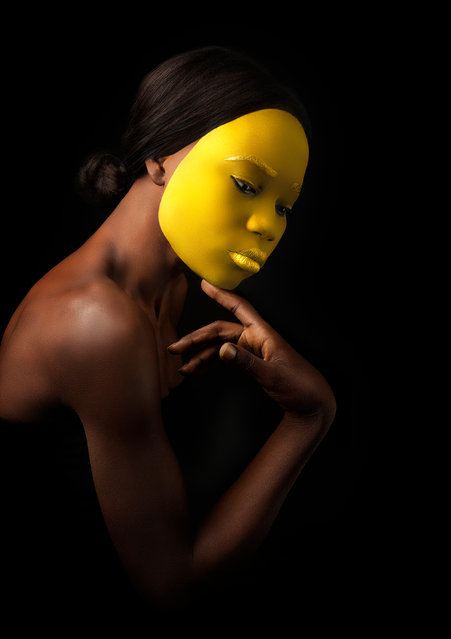
As part of FLAIR Melbourne – a Flinders Lane art festival – Melbourne’s Lisa Minogue presents stylised photographic portraits of Australian women of colour, their faces painted vibrantly to accentuate their individuality and encourage the viewer to study each face more closely. Minogue asked each woman the same question: “What do the words “coloured girl” mean to you?”. Here: Ayah. “When I was at primary school, all these kids would touch my hair and rub my skin to see if the colour would come off. I would think, “It’s just skin ... what do you expect?”. (Photo by Lisa Minogue/The Guardian)
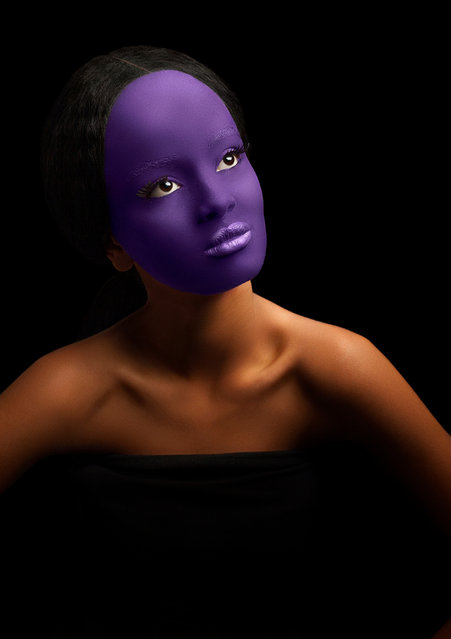
Liberty. “I am proud to be black. When stereotypes arise, I remind myself that way up the family tree I am connected to a long line of strong and powerful independent black women”. (Photo by Lisa Minogue/The Guardian)
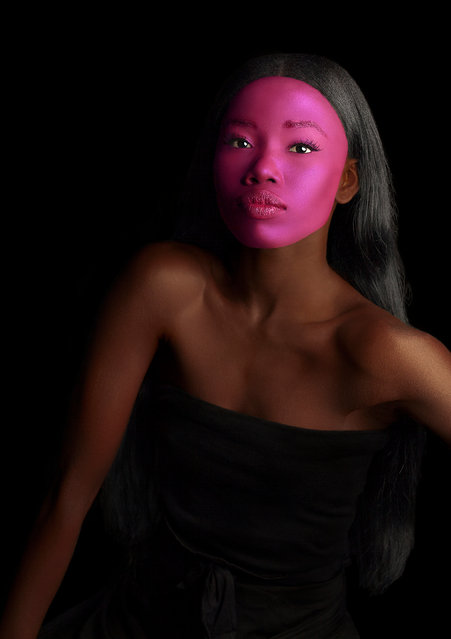
Atong. “Why make it harder for me to stay true to my culture and love my skin colour? Why take my culture, yet not me? Why make my sisters so weak that they feel they have to bleach their skin colour to belong and be excepted by the mainstream? ... If (racism) was not the reason, why only show in the media that in order to be beautiful you need to be white?”. (Photo by Lisa Minogue/The Guardian)
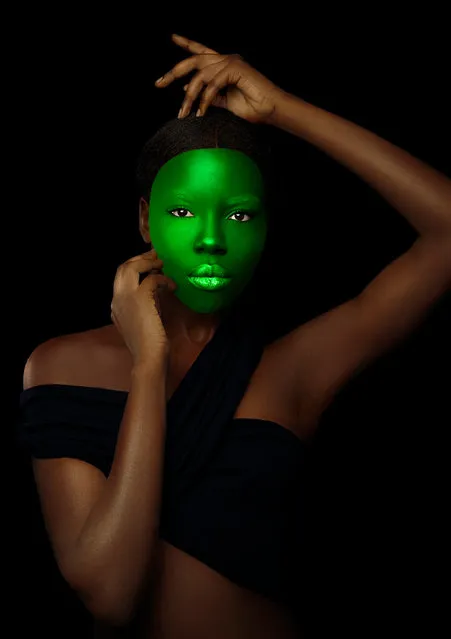
Achan. “The “colour” of my skin is the root of my history, my ancestors and most importantly my future. I will not let the pigments of my skin define me, however, and I will not let it be defined by others”. (Photo by Lisa Minogue/The Guardian)
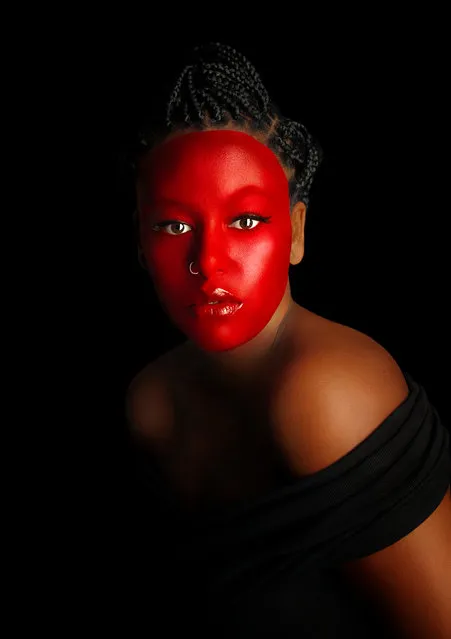
Missi. “Being black in Australia means a complete disregard for the right to one’s personal space, having strangers come up to you and touch your hair, swooning over this month’s hairstyle. Being black in Australia means you are never born a white canvas; instead you are marked with the stereotypes of a black person – people assume you are into hip-hop, play basketball or can sing”. (Photo by Lisa Minogue/The Guardian)
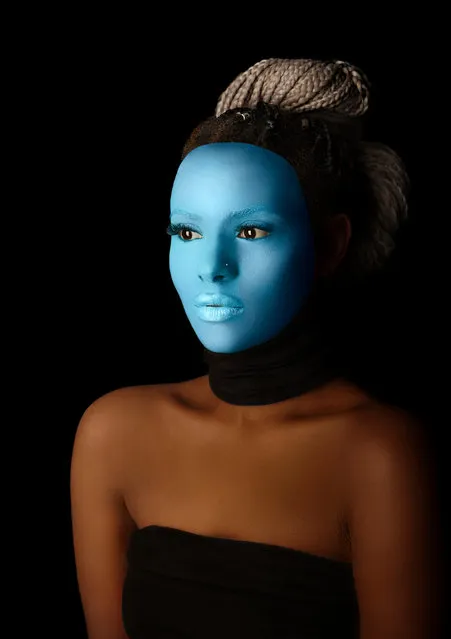
Brtukan. “Being a girl of colour in a society where the majority of the people are white, I have had to get used to all the different ways people approach me. From being asked what kind of rap music you listen to and how you wash your hair, to getting told, “you don’t sound black”, “you’re pretty for a black girl” or “you’re not that black so it’s OK”, as if being black is such a bad thing”. (Photo by Lisa Minogue/The Guardian)
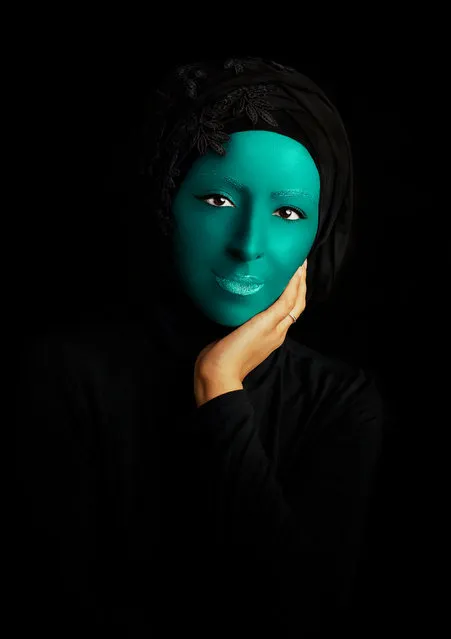
Zulfiye. “When being different is your normal, you wonder if a world could ever exist where you don’t stand out. You contemplate how life would be if you looked like most others did”. (Photo by Lisa Minogue/The Guardian)
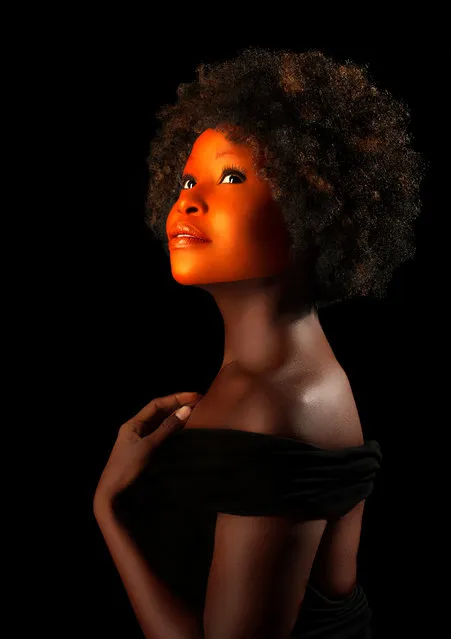
Nehanda. “I now choose to embody the resilience, pride and grace of my ancestors. I now know they were born free, advanced and civilised before colonisation and slavery. I will no longer choose to see my coloured brothers and sisters as anything less than exceptional human beings who have had to overcome a system of oppression that has tried in all its might, for many generations, to wash out all colour in this world”. (Photo by Lisa Minogue/The Guardian)
17 Aug 2016 11:16:00,
post received
0 comments
